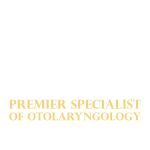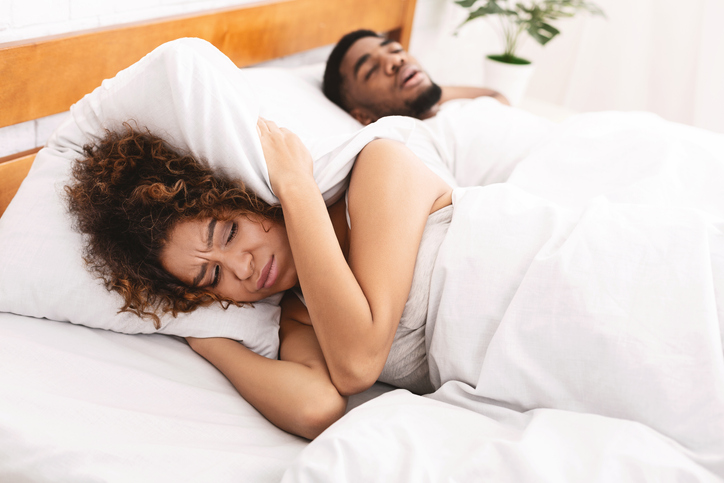Sleep apnea is a severe sleep disorder that affects millions of people worldwide. It is characterized by repetitive pauses in breathing during sleep, which can last from a few seconds to several minutes. These pauses can cause a person to wake up multiple times during the night, leading to poor sleep quality, daytime fatigue, and an increased risk of health problems such as high blood pressure, heart attack, and stroke. If you think you have sleep apnea, it’s wise to consult an ent doctor Los Angeles for the best sleep apnea treatments.
Can Sleep Apnea be Cured?
Currently, there is no known cure for treating sleep apnea. However, treatment options are available to help manage the condition and improve sleep quality. The most common treatment that can be undergone for sleep apnea is continuous positive airway pressure (CPAP), which delivers a steady stream of air through a mask worn over the nose and mouth. This helps to keep the airway open and prevent pauses in breathing. Other treatment options include lifestyle changes, such as losing weight, avoiding alcohol and sleeping on your side, dental appliances or surgery.
Some people find relief from sleep apnea by making lifestyle changes, such as losing weight, avoiding alcohol and sleeping on your side. However, there may need to be more for everyone. Dental appliances worn during sleep can help keep the airway open by repositioning the jaw and tongue. Surgery may also be an option, but surgery is usually reserved for people who do not respond to other treatment for sleep apnea.
Home Remedies for Sleep Apnea
Home remedies to treat sleep apnea can be an effective way to help manage symptoms and improve sleep quality without the need for medication or medical devices. Some of the most popular home remedies to treat sleep apnea include:
- Losing weight: Excess weight can pressure the airway and contribute to sleep apnea. Losing weight can help reduce symptoms’ severity and improve sleep quality.
- Sleeping on your side: Sleeping on your back can cause the tongue and soft palate to collapse to the back of the throat, obstructing the airway. Sleeping on your side can help to prevent this from happening.
- Avoiding alcohol and sedatives: Alcohol and sedatives can relax the muscles in the airway and contribute to sleep apnea. Avoiding these substances before bed can help to improve sleep quality.
- Nasal decongestants: Nasal decongestants can help open the airway and reduce sleep apnea symptoms.
- Practicing relaxation techniques: Stress and anxiety can contribute to sleep apnea. Practicing relaxation techniques such as yoga, meditation or deep breathing can help to reduce stress and improve sleep quality.
- Avoiding caffeine and nicotine: Stimulants such as caffeine and nicotine can interfere with sleep and worsen sleep apnea symptoms.
- Humidifying the air: Dry air can irritate the airway and worsen sleep apnea symptoms. A humidifier can help to moisten the air and reduce symptoms.
Sleep Apnea Machines
Several types of sleep apnea machines are available, each with unique features and benefits. The most common types of sleep apnea machines include:
- CPAP (Continuous Positive Airway Pressure) machines: These machines deliver a steady stream of air through a mask worn over the nose and/or mouth. They are the most common type of sleep apnea machine and are typically recommended for people with moderate to severe sleep apnea.
- APAP (Automatic Positive Airway Pressure) machines: These machines automatically adjust the pressure of the air being delivered based on the needs of the individual. They are typically recommended for people with mild to moderate sleep apnea.
- BiPAP (Bilevel Positive Airway Pressure) machines: These machines deliver two levels of pressure, one for inhaling and one for exhaling. They are typically recommended for people with central sleep apnea or complex sleep apnea.
- ASV (Adaptive Servo-Ventilation) machines: These machines use advanced algorithms to automatically adjust the pressure of the air being delivered based on the needs of the individual. They are typically recommended for people with central sleep apnea or complex sleep apnea.
- Travel CPAP machines: These machines are smaller and more portable, making them suitable for people who travel frequently.
It’s important to note that different types of sleep apnea machines may be more suitable for different people depending on the severity of their condition, and it’s always recommended to consult with ent doctors Los Angeles to determine which machine may be best for you. Additionally, different machines may have different features and accessories such as, humidifiers, heated tubes, etc. It’s also important to follow the cleaning and maintenance instructions for the machine to ensure it works efficiently and properly.
Surgery for Sleep Apnea
Surgery is considered a last resort treatment option for sleep apnea and is typically only recommended for people who do not respond to other treatment options such as lifestyle changes, dental appliances or CPAP machines. Some of the most common surgery options include:
- Uvulopalatopharyngoplasty (UPPP): This surgery removes excess tissue from the back of the throat to widen the airway.
- Genioglossus advancement: This surgery repositions the tongue to prevent it from blocking the airway.
- Hyoid suspension: This surgery repositions the hyoid bone located in the front of the neck to help open the airway.
- Somnoplasty: This surgery uses radiofrequency energy to shrink the soft palate and uvula, which can help to reduce snoring and improve sleep apnea symptoms.
Why You Should Treat Your Sleep Apnea?
Treating sleep apnea is important for a number of reasons. First and foremost, sleep apnea can disrupt sleep quality and cause daytime fatigue, making it difficult to stay awake and alert during the day. This can lead to problems with work, school, and daily activities and even put people at risk for accidents and injuries.
Sleep apnea is also associated with an increased risk of a number of health problems, including high blood pressure, heart attack, stroke, and diabetes. In addition, people with sleep apnea are more likely to experience depression and anxiety.
Sleep apnea treatment can help improve sleep quality and reduce the risk of health problems associated with the condition. Continuous positive airway pressure (CPAP) machines, lifestyle changes, dental appliances, and surgery are some treatment options available to help manage sleep apnea.
It is also important to note that if left untreated, sleep apnea can lead to chronic fatigue and poor quality of life and make it difficult to achieve a good night’s sleep. Thus, seeking help and advice from a healthcare professional is essential if you suspect you have sleep apnea. The earlier it’s diagnosed and treated, the better your chance of avoiding long-term complications and improving your overall health and well-being.
Looking for sleep apnea treatment?
Are you suffering from trouble sleeping and seeking sleep apnea treatments? Call Dr. Madison Richardson’s office to discuss your symptoms and treatment. Dr. Richardson specializes in treating various illnesses, including sleep apnea, and is ready to begin your treatment today.

